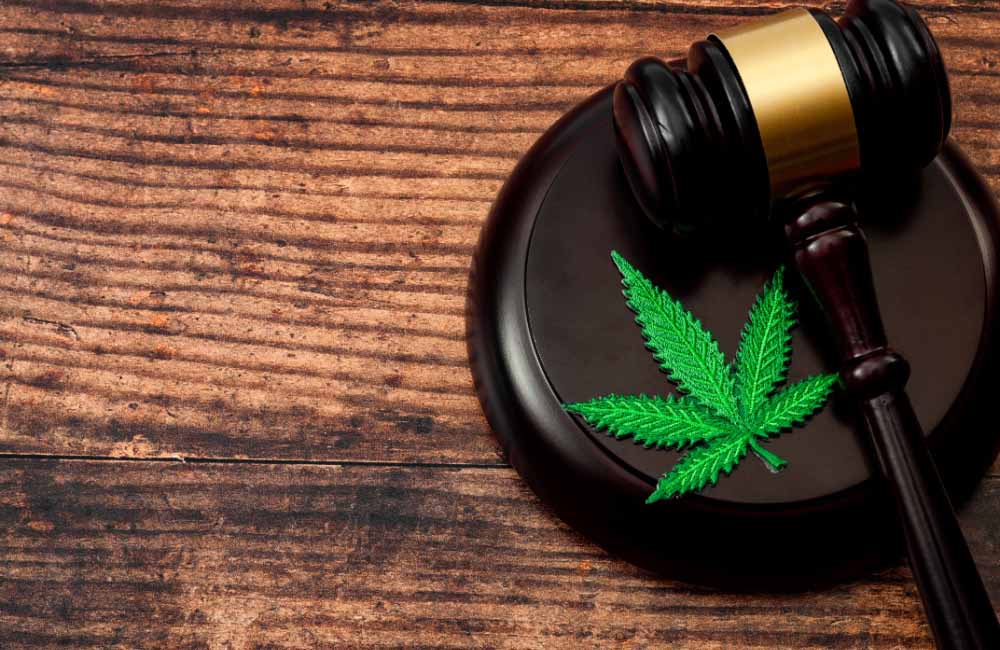What Is the Difference Between Cannabis Legalization and Cannabis Decriminalization?
The reform of cannabis laws remains a hotly debated issue in many parts of the country and the halls of the U.S. Congress. For those new to the debate, it can get confusing, especially around the ideas of cannabis legalization and cannabis decriminalization.
While they might sound similar, they represent distinct approaches to addressing the use and possession of cannabis. One way to understand the significance is in the current policy from the White House. President Joe Biden favors cannabis decriminalization at the federal level, but has not yet fully supported the idea of cannabis legalization.
He’s also asked for a review of how the federal government classifies cannabis as an illegal drug, but has not called for its removal from the federal schedule of illegal drugs.
For those relatively new to the debate, the following looks at the differences between cannabis legalization and cannabis decriminalization.
What Is Cannabis Legalization?
Cannabis legalization refers to the process of allowing the legal production, sale, possession and use of cannabis for both medical and recreational purposes. When a jurisdiction legalizes cannabis, it establishes a regulatory framework that governs how the plant can be grown, distributed and consumed.
Under a legalized system, licensed businesses cultivate and sell cannabis products, subject to strict regulations and oversight. This often includes requirements for product testing, labeling, and packaging. Additionally, governments typically levy taxes on cannabis sales, which can generate revenue for various public initiatives.
One of the primary benefits of cannabis legalization, which is growing in popularity even in states around the country that have not yet legalized, is the potential to undermine the illegal market. By providing a legal avenue for obtaining cannabis, legalization may channel revenue away from criminal organizations. Moreover, it allows for quality control measures to be put in place, ensuring that consumers have access to safe and reliable products.
Another significant aspect of cannabis legalization is the potential for medical applications. When cannabis is legal, it can be studied more rigorously, potentially leading to the development of new medications or treatment options for a range of conditions.
What Is Cannabis Decriminalization?
Cannabis decriminalization, on the other hand, does not make cannabis legal, but rather, it removes or reduces criminal penalties associated with its possession or use. Instead of facing criminal charges, individuals caught with small amounts of cannabis might receive civil fines or attend drug education programs.
Decriminalization aims to shift the focus from punishment to harm reduction. By treating cannabis possession as a civil offense rather than a criminal one, jurisdictions hope to reduce the burden on the criminal justice system and minimize the collateral consequences associated with criminal convictions.
It’s important to note that while cannabis decriminalization reduces the legal consequences for possession, it does not address the issues of illegal cultivation, distribution or sales. Therefore, the illicit market for cannabis may persist.
Key Differences Between Cannabis Legalization and Cannabis Decriminalization
The main distinction between cannabis legalization and cannabis decriminalization lies in the level of legal acceptance and regulation. Legalization establishes a comprehensive framework for the legal production, sale and use of cannabis, while decriminalization focuses on reducing or eliminating criminal penalties for possession and use.
Additionally, legalization often involves a robust regulatory system that oversees all aspects of the cannabis industry, from cultivation to sales, whereas decriminalization primarily affects individuals caught with small amounts of cannabis.
Cannabis legalization and decriminalization represent two distinct approaches to addressing the use and possession of cannabis. Each approach has its own set of advantages and considerations, and the choice between them depends on the goals and priorities of the jurisdiction in question. As attitudes towards cannabis continue to evolve, understanding these differences is crucial for informed discussions about drug policy reform.




